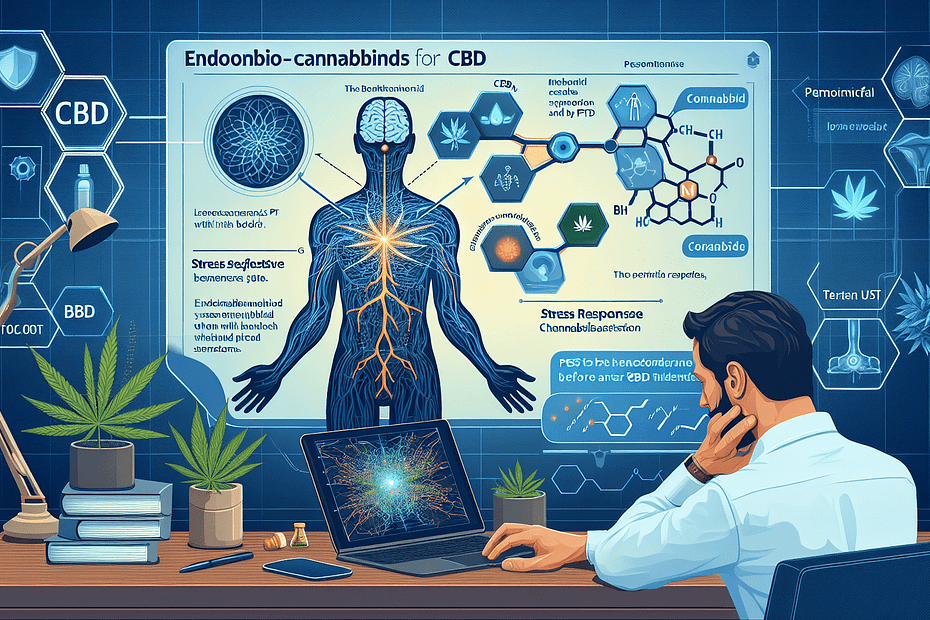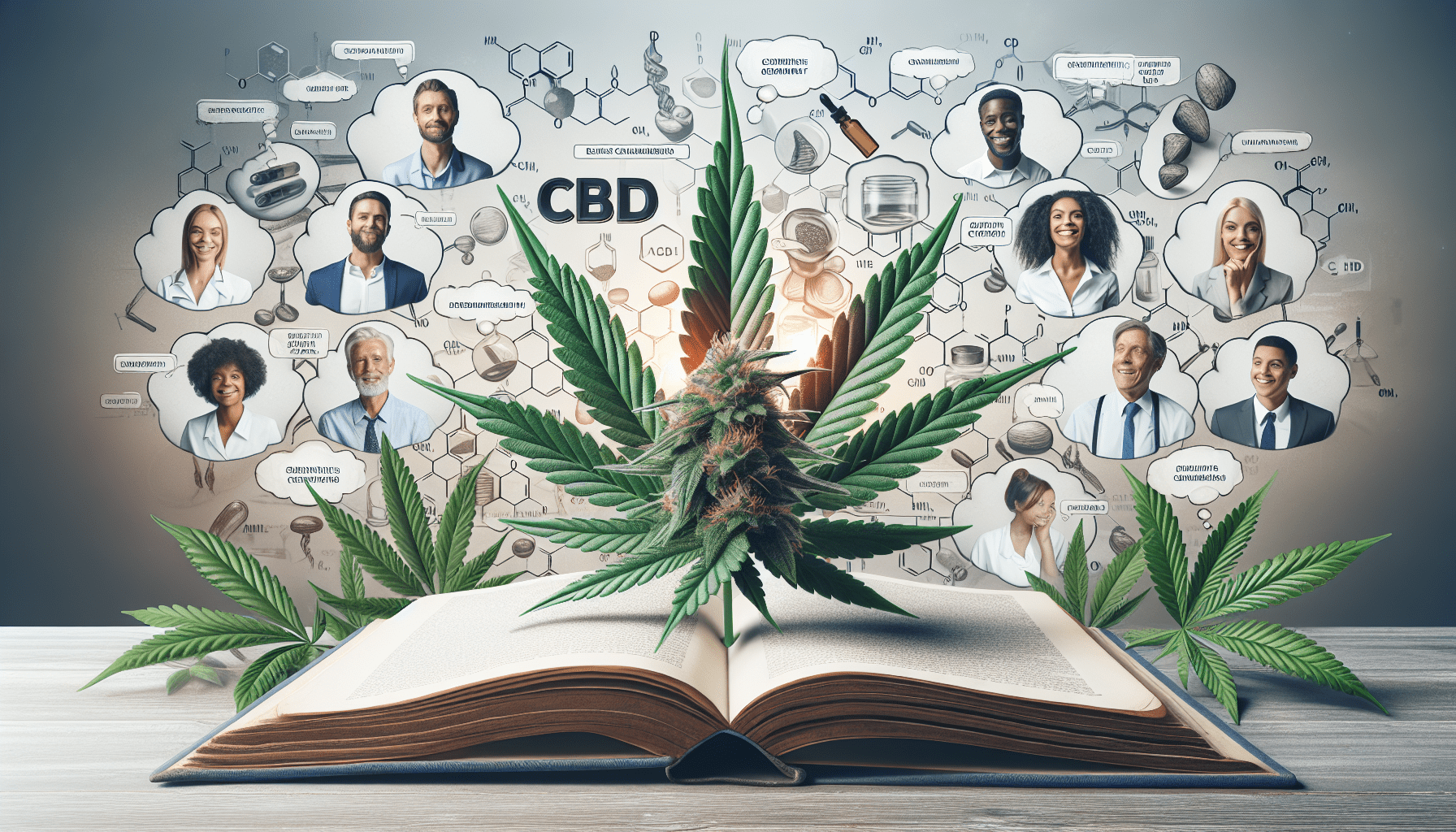In your quest for understanding the potential benefits of CBD, you may have stumbled upon its supposed efficacy in managing symptoms of post-traumatic stress disorder (PTSD). But what exactly is CBD and how does it interact with the complicated web of symptoms that come with PTSD? In this article, we will explore the role that CBD plays in alleviating the distressing symptoms of PTSD and shed light on its potential as a natural and alternative treatment option. So, sit back, relax, and let’s delve into the world of CBD and its impact on PTSD symptoms.
Understanding PTSD
What is PTSD?
Post-Traumatic Stress Disorder (PTSD) is a mental health condition that can develop after experiencing or witnessing a traumatic event. It is characterized by a range of distressing symptoms that can significantly impact an individual’s daily life. These symptoms may include intense anxiety, intrusive thoughts or flashbacks related to the trauma, difficulty sleeping, and emotional instability. PTSD can affect anyone, regardless of age, gender, or background, and it is important to seek proper diagnosis and treatment to effectively manage the condition.
Causes of PTSD
PTSD can result from a wide range of traumatic experiences, such as military combat, physical or sexual assault, accidents, natural disasters, or the sudden death of a loved one. The intensity of the trauma, as well as the individual’s perception and response to it, can contribute to the development of PTSD. Additionally, individuals with a history of previous traumatic experiences or those with certain genetic predispositions may be more susceptible to developing the disorder. It is essential to understand the causes of PTSD to better comprehend how CBD can potentially help manage its symptoms.
Symptoms of PTSD
The symptoms of PTSD can vary from person to person, but they generally fall into four main categories: intrusive memories, avoidance, negative changes in thought and mood, and changes in physical and emotional reactions. Intrusive memories refer to the distressing recollection of the traumatic event, which can manifest as flashbacks, nightmares, or even physical reactions when reminded of the trauma. Avoidance behaviors involve consciously avoiding situations, people, or places that may trigger memories of the trauma. Negative changes in thought and mood can lead to feelings of guilt, depression, anxiety, or emotional numbness. Finally, changes in physical and emotional reactions can include hyperarousal, heightened startle response, irritability, and difficulty sleeping. These symptoms can have a significant impact on a person’s quality of life and well-being.
CBD and its Effects
What is CBD?
Cannabidiol, or CBD, is one of the many naturally occurring compounds found in cannabis plants. Unlike its well-known counterpart, tetrahydrocannabinol (THC), CBD does not produce psychoactive effects. Instead, it is known for its potential therapeutic properties. CBD can be derived from both hemp and marijuana plants, with hemp-derived CBD containing negligible amounts of THC, making it legal in many parts of the world. CBD is available in various forms, including oils, capsules, topical creams, and edibles. It is important to note that CBD products should be sourced from reputable manufacturers and purchased from reliable sources to ensure safety and quality.
How CBD works in the body
CBD interacts with the body’s endocannabinoid system (ECS), a complex network of receptors, enzymes, and endocannabinoids that are involved in regulating various physiological processes. The ECS has two primary receptors, known as CB1 and CB2, which are found throughout the body. CBD interacts with these receptors, indirectly influencing their activity and promoting balance within the body. Additionally, CBD can also interact with receptors outside of the ECS, such as serotonin receptors, which play a role in mood regulation. By modulating these receptors and influencing various neurotransmitters, CBD may help alleviate symptoms associated with PTSD.
Benefits of CBD
CBD has garnered significant interest within the medical and mental health communities due to its potential therapeutic benefits. Some of the potential benefits of CBD that may be relevant to managing PTSD symptoms include:
-
Anxiety Reduction: CBD has been studied for its anxiolytic properties, meaning it may help reduce anxiety levels. By interacting with receptors involved in anxiety regulation, CBD may promote a sense of calmness and relaxation.
-
Improved Sleep: Many individuals with PTSD experience difficulties falling asleep or maintaining a restful sleep. CBD has shown promise in promoting better sleep patterns, potentially by reducing anxiety and improving overall sleep quality.
-
Mood Stabilization: PTSD can lead to mood swings, depression, and emotional instability. CBD has been investigated for its potential mood-regulating effects, suggesting it may help stabilize emotions and improve overall well-being.
-
Pain Relief: CBD has been found to possess analgesic properties, making it a potential natural alternative for managing pain associated with physical injuries or chronic conditions often experienced by individuals with PTSD.
-
Reduction of Inflammation: Inflammation has been implicated in various mental health conditions, including PTSD. CBD has shown anti-inflammatory effects, which could potentially help mitigate inflammation related to PTSD and reduce associated symptoms.
-
Addiction Recovery Support: Substance abuse is often co-morbid with PTSD, as individuals may turn to drugs or alcohol as a coping mechanism. Preliminary studies suggest that CBD may aid in substance abuse recovery by reducing cravings and addressing underlying anxiety or stress.
While further research is needed to fully understand and validate these potential benefits, initial findings suggest that CBD may offer a promising avenue for managing PTSD symptoms.
Research on CBD and PTSD
Studies on CBD and PTSD
Although research on CBD’s effects specifically in individuals with PTSD is still limited, several studies have investigated the compound’s potential therapeutic benefits for managing PTSD symptoms. A double-blind, randomized clinical trial published in the Journal of Psychoactive Drugs in 2019 examined the effects of CBD on 11 adults with PTSD. The study found that CBD treatment led to a significant reduction in symptoms of PTSD, including insomnia and hyperarousal.
Another study published in Frontiers in Neuroscience in 2020 explored the effects of CBD on fear memory extinction, a process often impaired in individuals with PTSD. The researchers found that CBD administration enhanced fear extinction learning and reduced fear-related behaviors, suggesting a potential role for CBD in reducing the fear response associated with traumatic memories.
While these studies provide preliminary evidence of CBD’s potential efficacy in managing PTSD symptoms, the limited sample sizes and varying study designs highlight the need for further research to establish conclusive findings.
Effectiveness of CBD in managing PTSD symptoms
While CBD shows promise as a potential complementary therapy for managing PTSD symptoms, it is important to note that it should not replace evidence-based treatments, such as therapy and medication. However, CBD may serve as a valuable adjunct to conventional treatment approaches, offering individuals an additional tool to manage their symptoms.
The effectiveness of CBD in managing PTSD symptoms may vary from person to person, as everyone’s physiology and response to treatment differ. It is crucial to work with a healthcare professional experienced in CBD use or a mental health specialist who can guide and monitor the integration of CBD into an individual’s treatment plan.
Reducing Anxiety and Stress
CBD’s impact on anxiety levels
Anxiety is a common symptom experienced by individuals with PTSD, and it can significantly impair daily functioning. CBD has shown potential in reducing anxiety levels through its interactions with receptors involved in anxiety regulation. Studies have indicated that CBD may help activate serotonin receptors, which can have an anxiolytic effect. By promoting feelings of relaxation and calmness, CBD may alleviate anxiety symptoms in individuals with PTSD.
CBD as a stress reliever
Stress is closely linked to the development and exacerbation of PTSD symptoms. Chronic stress can disrupt the body’s natural equilibrium and lead to long-term physical and mental health issues. CBD has been studied for its stress-relieving properties, with research suggesting that it may help regulate the body’s stress response system, including the release of stress hormones like cortisol. By modulating the stress response, CBD may help individuals with PTSD better cope with stressful situations and reduce their overall stress levels.
Improving Sleep Patterns
How CBD affects sleep
Sleep disturbances, such as insomnia and nightmares, are prevalent in individuals with PTSD. CBD has shown potential in improving sleep patterns by addressing some of the underlying factors contributing to sleep difficulties. The compound’s anxiolytic properties can help reduce anxiety and promote relaxation, creating a conducive environment for sleep. Additionally, CBD may interact with receptors in the brain involved in sleep regulation, potentially influencing sleep-wake cycles and promoting better sleep quality.
CBD’s role in promoting deeper sleep
Quality sleep is essential for overall health and well-being, and individuals with PTSD often struggle with achieving restful sleep. CBD may play a role in promoting deeper sleep by reducing the frequency and intensity of nightmares. Nightmares are a common symptom of PTSD and can disrupt sleep, leading to fatigue and exacerbating other PTSD symptoms. By potentially mitigating nightmares, CBD may help individuals with PTSD experience more restful and rejuvenating sleep, ultimately contributing to their overall recovery and well-being.
Enhancing Mood and Emotional Stability
CBD for mood regulation
Mood swings and emotional instability are hallmark symptoms of PTSD. CBD has shown potential in modulating mood through its interactions with various receptors in the brain, such as the serotonin receptors. Serotonin is a neurotransmitter that plays a crucial role in mood regulation, and imbalances in serotonin levels have been associated with mood disorders. CBD’s ability to influence serotonin receptors and promote a sense of calmness and emotional stability may serve as a valuable tool for managing mood-related symptoms of PTSD.
CBD for emotional stability
The emotional instability experienced by individuals with PTSD can be overwhelming and significantly impact their daily lives. CBD may help promote emotional stability by reducing anxiety levels, improving sleep quality, and regulating mood. By addressing these underlying factors contributing to emotional instability, CBD may offer individuals with PTSD a sense of control and stability over their emotions, ultimately improving their overall well-being and quality of life.
Alleviating Flashbacks and Nightmares
CBD’s impact on flashbacks
Flashbacks are intrusive memories of the traumatic event that individuals with PTSD may experience, causing them to re-live the trauma vividly. CBD has shown potential in mitigating flashbacks through its modulation of the endocannabinoid system and interactions with various brain receptors involved in memory formation and recall. By potentially reducing the frequency and intensity of flashbacks, CBD may provide individuals with PTSD some relief and allow for better functioning in their day-to-day lives.
CBD’s effect on nightmares
Nightmares can be distressing and disruptive, leading to sleep disturbances and exacerbation of other PTSD symptoms. CBD has been studied for its potential in reducing nightmares, potentially by acting on sleep-regulating neurotransmitter systems and addressing underlying anxiety or stress levels. By potentially decreasing the occurrence and intensity of nightmares, CBD may offer individuals with PTSD a more restful and peaceful sleep experience, contributing to their overall well-being and recovery.
Addressing Pain and Inflammation
CBD as a natural pain reliever
Many individuals with PTSD experience chronic pain due to physical injuries sustained during the traumatic event or as a result of chronic stress and tension. CBD has been found to possess analgesic properties, which could potentially provide natural pain relief. CBD interacts with various receptors involved in pain perception, effectively reducing discomfort and promoting a greater sense of physical well-being. By offering a potentially safer alternative to traditional pain medications, CBD may benefit individuals with PTSD who struggle with chronic pain.
Anti-inflammatory properties of CBD
Inflammation has been implicated in the development and maintenance of various mental health conditions, including PTSD. CBD has shown anti-inflammatory effects, potentially offering relief from inflammation-related symptoms. By addressing inflammation, CBD may provide a multi-faceted approach to managing PTSD, easing not only physical discomfort but also potentially contributing to a reduction in other inflammatory symptoms associated with the disorder.
Mitigating Substance Abuse
CBD as a tool for addiction recovery
Individuals with PTSD may turn to substances as a means of coping with their symptoms, leading to a higher risk of substance abuse disorders. CBD has shown potential as a tool for addiction recovery due to its interactions with various receptors in the brain involved in reward and addiction pathways. Preliminary studies suggest that CBD may reduce drug-seeking behavior and diminish the rewarding effects of addictive substances. By providing a potential alternative or complement to traditional addiction treatment methods, CBD may facilitate a more comprehensive approach to addressing substance abuse in individuals with PTSD.
CBD’s impact on substance cravings
Cravings for substances can be overwhelming and challenging to manage for individuals with PTSD and co-occurring substance abuse disorders. CBD may potentially help reduce substance cravings by interacting with brain regions involved in addiction and reward pathways. By modulating these pathways, CBD may offer individuals with PTSD a greater sense of control over their cravings and reduce the likelihood of relapse. However, it is essential to approach CBD as a supportive adjunct to comprehensive substance abuse treatment and not as a standalone solution.
Conclusion
The potential of CBD in managing PTSD symptoms
CBD shows promise as a potential tool in managing the symptoms associated with PTSD. Research indicates that CBD may offer various potential benefits, including anxiety reduction, improved sleep patterns, mood stabilization, alleviation of flashbacks and nightmares, pain relief, anti-inflammatory effects, and support in addiction recovery. However, further research is needed to develop a deeper understanding of the efficacy of CBD in managing PTSD symptoms and to establish optimal dosages and treatment regimens.
Future directions in CBD research
As CBD research continues to evolve, it is important to explore its effects on different populations, refine extraction and delivery methods, and enhance our understanding of its potential interactions with other medications or treatments. Long-term studies examining the safety and efficacy of CBD as a therapeutic tool for managing PTSD symptoms are warranted. Additionally, further investigation into the specific mechanisms through which CBD influences the underlying neurobiology of PTSD can help inform targeted treatment approaches. As the body of evidence grows, CBD may become an even more valuable tool in the management of PTSD and its associated symptoms.





